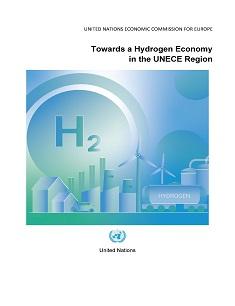
Hydrogen is an energy carrier that can decarbonize economies and promote sustainable economic growth and system resilience. Although many low-emission hydrogen projects have been announced over the past two years, a mere 4% of them have reached a final investment decision. This indicates that achieving the scale and pace of hydrogen deployment requires more decisive actions from policymakers and the emerging hydrogen industry.
The crucial first step is the establishment of an internationally agreed-upon classification system that is clear, scientifically rigorous, and easy to implement. Both the UNECE Committee on Sustainable Energy and the International Energy Agency determined that a hydrogen classification based on colour lacks practical value in international trade, as does the use of terms such as “sustainable”, “low carbon” or “clean” hydrogen. By agreeing to use the emissions intensity of hydrogen production in the definition concerning hydrogen, member States can facilitate market and regulatory interoperability.
A proper hydrogen classification can have many facets. This publication analyses one of them: greenhouse gas emissions associated with its production and use. It provides an overview of global technical standards for hydrogen safety and sustainability, along with reporting standards for investors and financial markets. This sets the stage for the development of a global regulatory framework for a hydrogen certification system.

